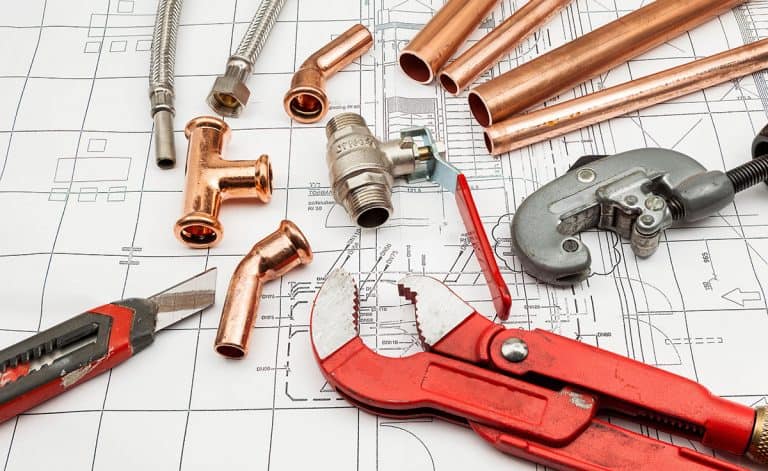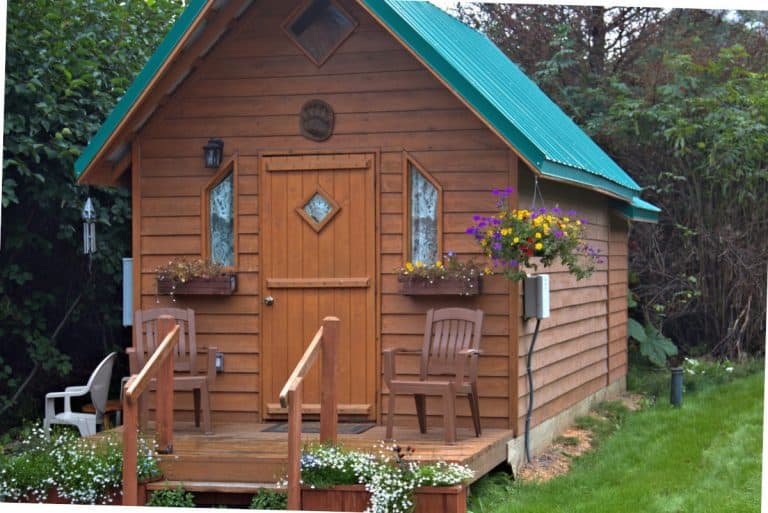Can You Stand Up In A Conversion Van? Dimensions Explained!
If you are planning on living in a conversion van for a long time, you are better off with a van you can stand up in. Can you stand up in a conversion van? Many people have chosen the van life for the lower cost of living and for the adventure. How comfortable are they? Are there a lot of conversion vans that you can stand up in?

Are conversion vans tall enough to stand up in?
You can stand up in some but not all conversion vans. Some vans are more than nine and a half feet high, so even the tallest person in the world can stand up in one. On average, they are about five and a half feet, which isn’t tall enough for most people.
You can either buy a van that is tall enough to stand up in or modify one to make it tall enough. Modification isn’t always necessary – many manufacturers offer vans tall enough for anyone to stand in.
Being taller than most people doesn’t prevent me from standing up in my conversion van. Vans with higher roofs are usually more expensive, but they don’t cost a fortune and they are widely available.
What is a Conversion Van?
A conversion van is a cargo van used for camping and long road trips. Many people live in a conversion van for a long time. Conversion vans became popular in the 1960s and 1970s.
Conversion vans can be used as small homes. There are tables, gas stoves, places to sleep, and more.
What Are High-Top Vans?
High-top vans do not use the original roof. Instead, after the van leaves the factory, the original roof is cut away. The original metal roof is replaced with a fiberglass high-top roof.
Removing most of the metal roof and replacing it with a higher fiberglass roof increases the amount of headroom in the van.
You can usually stand up with a high-top roof, and there is far more storage space. They are better if you want to live in your van for a long time.
Low-top vans use the original metal roof, so you usually can’t stand up in them. They are more aerodynamic than high-top vans and cheaper.
Why Do You Need to Stand Up in Your Van?
When a person buys a van for regular use, they don’t usually think about whether they can stand up in it or not. It isn’t important to them. However, if you are buying a van to use as a home, a high roof may be more important to you.
If you are living in a van, you are going to spend a lot more time in there than someone who only uses it for transportation. If you can’t stand up in your van, it may feel claustrophobic.
However, some people don’t mind living in conversion vans they can’t stand up in. If you aren’t sure, you should go with a van that you can stand up in. Vans you can stand up in are usually much more comfortable.

How Tall Are Vans?
An average van interior is about five and a half feet tall without any modifications, which is too short for most adult passengers to stand in. However, vans vary a lot in height on the inside. Ford cargo vans have anywhere from four to nine and a half feet of interior height.
The tallest ford cargo vans are not usually bought for personal use – these are mostly commercial vehicles. However, some people still use these very high-roofed vans as recreational vehicles.
Even family vans can be tall enough to stand up in. You can get family vans with up to six and a half feet of internal room, enough for a large majority of people to stand up in. If a van you really like isn’t tall enough, you can hire people to modify it.
Low-Roofed vs High-Roofed Vans
High-roofed vans make significantly better living spaces, in my experience. If you live in a low-roofed conversion van, you won’t be able to stand up while you move around in it. Not being able to stand up when you move around is uncomfortable enough that I highly recommend low-roofed vans.
Advantages and Disadvantages of the Two Kinds
Low-top vans have some advantages and not only disadvantages. First off, low-top vans are cheaper. Secondly, it is easier to find a parking spot for a low-top van. A lot of the time, there is a maximum height to park.
You can’t always get into a parking garage with a tall van. You may hit obstacles such as tree branches that you wouldn’t hit with a vehicle of regular height. You might also not be able to fit under a low overpass with a very tall van.
Despite these disadvantages, I prefer tall vans. You do not frequently run into problems because of the van’s height, and they are much more comfortable to live in.
High-Top Roofs Advantages and Disadvantages
High-top roofs are better for storage than low-top roofs. Room in your conversion van will be scarce, and you will have a lot more if your roof is higher. You can fit tall cabinets and many other things into a van with a high-top roof.
More than anything else, they are more comfortable to live in. If you have to move from one part of your van to another while stooped over, you will start wishing you had a van with a higher roof.
However, vans with high-top roofs are more expensive. They are tricky to drive, and you can run into some legal hassles with high-roofed vans. Just because your high-roofed van is legal in one state doesn’t mean it will be legal everywhere.
Low-Top Roofs Advantages and Disadvantages
Vans with low-top roofs are more common and more affordable. They are also easier to drive and have a smaller turn radius. You can easily find a place to park them, and they don’t cost as much to maintain.
However, you can get neck pains after a while if you live in a van with a low roof. Moving around with your head low is fine for some people but can be very unpleasant for others. Air circulation is also not nearly as good with a low-top roof.
What Features Should a Conversion Van Have?
Space is limited in a converted cargo van, so there are only so many features your van can have. You cannot have nearly as many amenities as a bus-sized motorhome offers. However, a conversion van can still offer things like:
- Water storage
- Proper beds
- Kitchen sinks
- Fridges
- Indoor bathrooms and showers
- Small dining areas
- Solar panels
- Couches
Try Driving the Van First
If you aren’t sure about whether to go with a very tall van, take it for a test drive before you buy it. Probably, you will get used to driving a very tall van quickly. However, there is a chance you will hate driving it.
Large vans are not good off-road vehicles. They usually don’t have four-wheel drive, so you can easily get stuck if you take them off-road.
No special license is required to drive a conversion van. Only larger RVs require special driver’s licenses. Don’t get a large van with standard transmission unless you already know how to drive a standard.






